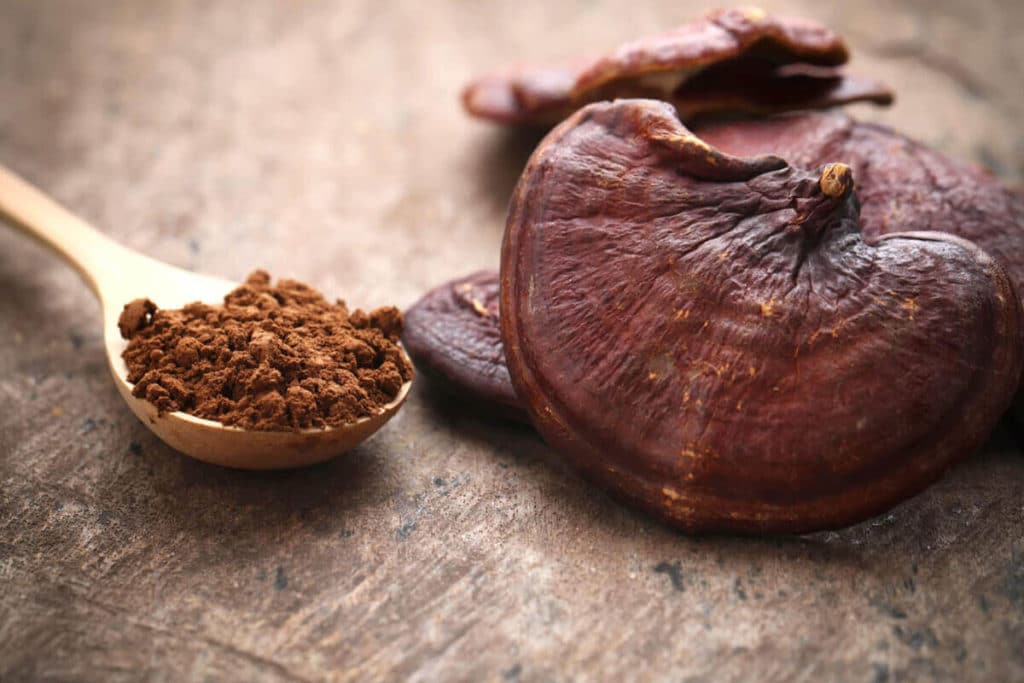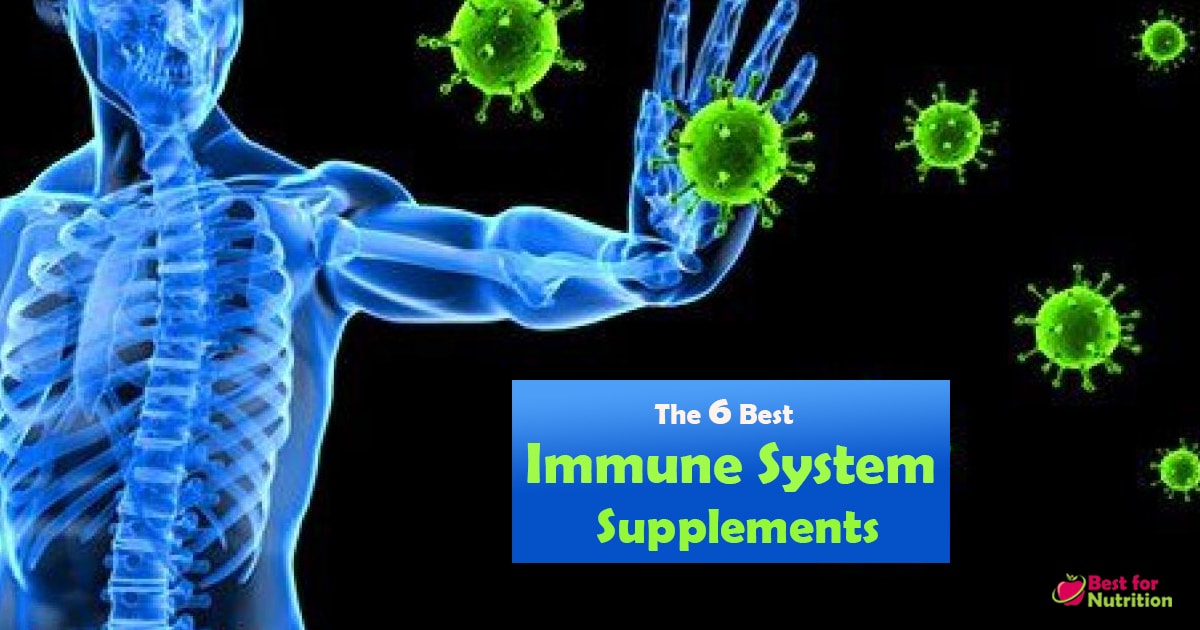There are several ways to effectively boost your body’s natural defenses and fight off harmful microorganisms that cause infections.
Your immune system does a great job of defending you from such pathogens or disease-causing organisms (1), (2). But there are times when your immune system gets weakened, and you come down with an illness or infection.
Certain diet and lifestyle changes, supplements, medications, and several more healthy living strategies can significantly strengthen your immune system (3), (4).
- 25 Tips To Strengthen Your Immunity Naturally
- Move your Body
- Get a Good Night’s Sleep
- Cut Back on the Alcohol
- Throw away your Cigarettes
- Cut Down Stress
- Eat More Healthy Fats
- Wash your Hands
- Have More Greens
- Rainbows in Your Diet
- Get Your Shots
- Cut Down Added Sugar
- Stay Hydrated
- Eat More Protein
- Maintain a Healthy Weight
- Soak up More Sunlight
- Drink More Tea
- Trust your Herbs and Spices
- Multivitamins May Help
- Stay Away from Processed Foods
- Keep Symptoms Of Chronic Conditions Under Control
- Have Plenty of Probiotics
- Taking Dietary Supplements
- Essential Oils
- The Magic of Medicinal Mushrooms
- Friends And Loving Pets
- The Final Note
25 Tips To Strengthen Your Immunity Naturally
Move your Body

One of the keys to healthy living is regular exercise. It controls body weight, promotes blood circulation, reduces obesity-related problems such as cardiovascular diseases, lowers blood pressure, and protects against diseases.
Exercise contributes to good health as a whole and therefore a healthy immune system. The free flow of blood promotes the cells and the substances of the immune system to move through the body and work efficiently.
In accordance with the U.S. National Library of Medicine, the elevated body temperature during and after exercise can fight infection better by preventing the bacteria from growing. Heavy breathing during exercise can help flush bacteria out of the lungs and airways (5).
Summary: Exercise helps the immune system to find and deal with pathogens and also down changes that the immune system faces as you age. It improves overall health and contributes to a good immune system.
Get a Good Night’s Sleep
A good night sleep is a major deterrent to infection-causing bacteria. Sleep facilitates the repair, rebuilding, and processing of your body. A healthy adult should get at least 7-8 hours of sleep each night to feel totally rested.
Research proves that if you are not rested properly, your immune system finds it very difficult to function the right way. All night the immune system converses with your brain about your health through a system consisting of neurotransmitters and hormones (6). This is often referred to as a brain-cytokine system. When you sleep less or are sick, this pathway gets disrupted and throws your circadian rhythm off.
This cytokine also works against infection and inflammation, and less sleep means less of this hormone, jeopardizing your body’s health.
Researchers from Germany have come up with the fact that sleep improves immune cells known as T-cells. They are the type of cells that fight against intracellular pathogens, such as flu, HIV, herpes, and cancer (7).
Summary: A good sleep boosts the function of the neurotransmitters and hormones and secretes cytokine, which works against infection.
Cut Back on the Alcohol
When a person is exposed to a virus or bacteria, the body wages a war against it, which is its immune response. This attacks the foreign pathogen. The better your immune system, the quicker you do the job.
It has been observed that alcohol intake makes it harder for the immune system to do that and weakens it. This leads the body to an increased risk of serious infections. Excessive drinking may reduce the number and functional capacity of macrophages, T-cells, and B-cells. This makes the immune system less efficient (8).
Alcohol damages the immune cells and fine hairs that line the airways that are the first line of defense of the respiratory tract. Similarly, alcohol can trigger inflammation in the gut and destroys the good bacteria that maintain the gut immune system (9). Research has confirmed that consuming alcohol increases your chances of severe respiratory syndromes.
However, consuming alcohol in moderation may help us steer clear of the problem and maybe good for our immune system (10). Studies have revealed that moderate alcohol consumption enhances vaccine response.
Summary: High intake of alcohol plays havoc with the immune system and weakens it. However, moderate intake has shown to avert this bad effect and in certain cases proved to be good for immunity.
Throw away your Cigarettes
Cigarettes lower immunity and the best way to boost your immune system is to stay clear of this troublemaker.
There are lots of chemicals that are found in cigarettes. One of them is Nicotine, a drug that is found in cigarettes. Along with this compound, smokers inhale 7000 other chemicals. Many of these chemicals come from burning tobacco leaves. Some of them are chemically active and trigger profound and damaging changes in the body.
Chemicals released by cigarette smoke are carbon monoxide, nicotine, nitrogen oxides, and cadmium. These interfere with the growth and proper functioning of immune cells like cytokines, T-cells, and B-cells (11).
Cigarettes contain 70 known cancer-causing chemicals. Smoking results in greater vulnerability to infections such as pneumonia and influenza. It also causes severe longer-lasting illnesses.
This study was conducted by taking 29 control subjects and it shows a significant decrease in lymphocyte counts (12,13).
Summary: The nicotine and other chemicals in cigarettes interfere with the normal functioning of the immune cells making your body vulnerable to infections. Therefore it is better for your health to stay clear of this troublemaker.
Cut Down Stress
Anxiety is defined as “intense, excessive, and persistent worry and fear about everyday situations”. Fast heart rate, rapid breathing, sweating, and feeling tired are some of its manifestations. It is normal in stressful situations but excessive anxiety can severely compromise your health and immune system (14).
Stress can trigger the flight or fight response and releases a huge quantity of chemicals and hormones such as adrenaline into your system. It is normal and to an extent boosts the immune system. But after a while, the body reverts back to normal and things soothe down.
However, chronic anxiety and stress weaken your immune system, leaving you vulnerable to viral infections and illness. It lowers the number of B-cells and T-cells in the body (15).
You must try to find ways to relieve your stress and include regular exercise, meditation, proper sleep to make your defense system stronger.
Summary: The hormone that is released during stress suppresses the effectiveness of the immune system. It is therefore of utmost importance to keep yourself stress-free through positive lifestyle changes.
Eat More Healthy Fats
Healthy fats found in olive oil, avocado oil, canola oil, and sunflower oil may boost the body’s immune response. They lead to decreased inflammation in response to stress or injury or chronic inflammation. Olive oil is linked to a decrease in the risk of chronic diseases like heart diseases, and Type-2 diabetes.
Fish oil is rich in DHA and EPA which are believed to help prevent diseases. It reduces inflammation. DHA also has been shown to enhance B-cell activity, a white blood cell, thereby boosting the pathogen fighting capability (16).
Krill oil, as the name suggests, is made of krill, a type of small crustacean consumed by whales, and penguins. Krill oil also contains omega-3 and omega-6 fatty acids like fish oil and is a great idea for those who do not want to consume seafood (17).
Often, it is marketed as superior to fish oil as it absorbs better in the body than fish oils. Krill contains a pigment called astaxanthin, which is a powerful antioxidant. In a 2007 study, it was observed that krill oil effectively lowered inflammation by 30 percent when fed 300 mg for a month (18).
Summary: Healthy fats that are rich in omega-3- fatty acids and omega-6 fatty acids have shown to boost the immune system by enhancing the functioning of the immune cells.
Wash your Hands
A number of infectious diseases can spread from one person to another by contaminated hands. Every now and then, the world has faced a pandemic that has threatened humanity. One of the ways to stop or reduce its spread has always been to wash hands thoroughly and /or use hand sanitizers, as frequently as possible (19).
Washing hands with soap and water reduces your chances of infection by 50 percent. Not only does it remove dirt but also harmful germs.
Wash your hands with clean, running tap water, apply soap and lather well for 20 seconds, run your hands together rapidly, if possible remove your rings and watches and rinse them well. It is better to use paper towels or best to use hot air dryers.
Summary: Washing your hands at regular intervals with soap and clean water helps remove dirt and germ, which when enters the body can make you sick.
Have More Greens
From Brussel sprouts and bok choy to asparagus and broccoli, it turns out that these greens in our diet are the source of a chemical signal that signals a fully functioning immune system.
The abundance of micronutrients that this green contains, bolsters the immune system. Phytochemicals such as flavonoids, carotenoids, phytoestrogens, vitamin C, vitamin E, and minerals like zinc, calcium, selenium, manganese, and magnesium are first-rate antioxidants and anti-inflammatory nutrients having a protective role upon your body (4).
The fiber content of these greens also acts as fodder for the good bacteria in the stomach that in turn strengthens your immunity.
Summary: Packed with vitamins and essential minerals, the greens are the healthiest and are the key to bolster your body’s defense mechanism.
Rainbows in Your Diet
Are you aware that 70 percent of your immune system is in your gut? So, the logic is pretty simple. Eat good, healthy food, and be ready to fight off pathogens (20).
Antioxidants are compounds in colorful fruits and vegetables which protect you from free radicals. These free radicals damage DNA and other components of the cell in your body. Fruits and vegetables of varied colors provide a great mix of protective antioxidants to boost your immunity (21).
Eat colored vegetables and low glycaemic fruits. Eat leafy greens, red watermelon, and carrots, berries with beautiful hue, oranges, and kiwi that are packed with Vitamin C, cantaloupe, and other bright colored food. Nuts and seeds, milk, and milk products for increased nutrient intake.
The more the color, the more are the phytonutrients, proteins, vitamins, and minerals that boost your immune cells and enable their smooth function. Vitamin A, Vitamin B6, Vitamin C, Vitamin D, and Vitamin E, all of them play a crucial part in the body’s immune system and are found in huge amounts in these foods (22).
Summary: The rainbow color in your diet ensures a varied combination of food that provides the antioxidant-rich nutrients that protects you from harmful pathogens.
Get Your Shots
Vaccines train the immune system and help it prepare to fight diseases, without completely exposing it to disease symptoms.
When the pathogens invade the body, lymphocytes respond by producing antibodies. These antibodies fight the invader and protect against further infection. This is what the vaccination does to you.
Vaccines are made of dead or weakened antigens. They are incapable of causing the infection but trigger the body to produce antibodies. After the threat passes, most of the antibodies which are produced to attack it, break down.
However, immune cells called memory cells remain inside the body and when the body encounters that antigen again, these memory cells produce the antibodies much faster and strike down.
Certain studies have confirmed that repeated administration of specific vaccines has augmented the immune response (23).
Summary: Vaccination raises your body’s defense against particular pathogens and prevents you from getting ill.
Cut Down Added Sugar
Too much sugar in the diet may curb the immune system cells that attack bacteria. This effect continues for at least a few hours of sugar intake.
Sugar’s impact on your health and the immune system is a complex interplay of hormonal, metabolic, and immunological processes that can severely threaten our health. Some of the effects are immediate. The intake of refined sugar reduces white blood cell performance and increases inflammation (24).
Rahiman F and Pool EJ, from the Department of Medical Bioscience in South Africa, study the in vitro effect of artificial and natural sweeteners on the immune system. They confirmed the role of sugar in reducing the level and efficacy of immune cells (25).
Summary: Excessive sugar corrodes the cells of the immune system and reduces their efficacy to fight infection.
Stay Hydrated
Drinking a sufficient amount of water is extremely important to keep the body hydrated. Staying hydrated helps the body to naturally eliminate toxins and other bacteria that may cause illness. It also helps to carry oxygen to all the cells in the body resulting in their efficient functioning (26).
You must drink every day the recommended amount of eight ounces per day, and four to eight ounces per every 15 minutes of activity, in case you are exercising.
Dehydration can cause physical manifestations such as headache, mood swings, less focus and problems of the digestive system, and reduces kidney and heart functions. These complications make you more susceptible to illness (27).
Summary: Intake of sufficient water ensures flushing out of toxins from the body thereby keeping the body protected from them. It also carries oxygen to all the cells and ensures efficient body function.
Eat More Protein
Most of the time we get to hear that chicken soup provides respite from cold and flu (28). The protein provided by it decreases the duration and intensity of the cold.
The antibodies that help fight diseases are actually made of protein. Protein is very important for enhancing immunity as it boosts cell production that operates the immune system.
Amino acids that are found in protein, are the building blocks of all cells, including cells of your immune system. If somehow, your protein intake is deficient, fewer WBC will be made by the body leading to weaker ability to combat antigens.
Glutathione production in some tissues is a central cycle of the antioxidant defense system in the body that dictates immune function. Protein claims to boost this cycle enabling better immune function.
Summary: The antibodies that help fight diseases are made of protein, hence sufficient intake of quality protein ensures all the amino acids that produce these immune cells.
Maintain a Healthy Weight
It is well recognized that obesity is behind a lot of diseases like high blood pressure, diabetes, heart diseases, and stroke. It can also affect bone health and can lead to early osteoarthritis and even osteoporosis (29).
Obesity can weaken and reduce its ability to fight off infections, according to scientists. Studies have seen the effect of an increase in obesity on bacterial infections. Hence, it is very important to maintain a healthy weight with a balanced diet and physical activity, ensuring overall good health.
Summary: Maintaining healthy body weight is extremely important for keeping our body strong and ready to fight infection. Low weight or excess weight may jeopardize your ability to fight by weakening the immune cells.
Soak up More Sunlight
Sunlight is composed of ultraviolet (UV), visible and infrared radiations. It is essential for life on earth as a source of energy, light, and warmth and to maintain oxygen levels in our atmosphere, due to the role it plays in photosynthesis.
Sunlight helps the body to produce Vitamin D, which boosts your immunity by modulating the immune responses (30).
It has both anti-inflammatory and immuno-regulatory properties and is extremely crucial for the activation of the immune system. It enhances the function of immune cells, including T-cells and macrophages that eat up the pathogens.
Researchers at Georgetown University (US) have found that sunlight energizes the T-cells that play a central role in human immunity. Low levels of blue light, found in sun rays, make T-cells move faster. T-cells, helper or killer, responds to infection by moving to the site. This orchestrates a response.
The World Health Organization (WHO) recommends 10-30 minutes of sunlight several times a week.
Summary: Exposure to sunlight for a certain duration boosts your immunity by producing Vitamin D and also by energizing the immune cells.
Drink More Tea

Two-third of the world’s population consumes tea.
Studies have confirmed that drinking green tea and chamomile tea can help strengthen the immune system (31). Both of them are loaded with polyphenols, powerful antioxidants that boost your immunity and fight germs effectively.
Catechins in green tea help prevent cell damage and boost cell growth.
Black tea contains tannins that help fight viruses such as influenza, dysentery, and hepatitis (32). It contains flavonoids that have strong antioxidant properties (33).
A 2007 paper by Harvard Medical School professor and rheumatologist Jack F. Bukowski and team was published in the Journal of the American College of Nutrition, who cited this topic.
Summary: Tea contains tannins, catechins, and other anti-oxidant properties that ward off infection when consumed every day.
Trust your Herbs and Spices
Research has suggested that compounds in herbs and supplements can truly enhance immunity. Ginseng, green tea, black cumin, licorice, milk thistle, echinacea, astragalus, and garlic are just a few names (34). Astragalus root and angelica roots have been used in Chinese and Russian medicine for centuries (35).
They have been reported to have immune-boosting benefits. They have been seen to modulate the immune system and treat any diseases. They can be drunk as a herbal tea or taken as a supplement.
Spices have been used forever as remedies in aiding recovery for many simple ailments. They have been used in brews, tinctures, and mixes and contain vitamins, minerals, and antioxidants with science-backed benefits that in addition to boosting immunity help you recover faster.
Ginger, turmeric, cinnamon, garlic, sage, thyme, are a few to name with. The natural antibacterial properties come handy in warding off diseases (36).
But please do keep in mind that a few of them may interfere with other medications, hence it is conducive to check with your doctor before starting one.
Summary: Herbs and spices are packed with micronutrients that have tremendous power to boost your immunity and ward off dangerous infections. They can be incorporated in food, taken with tea, or can be consumed as supplements.
Multivitamins May Help
People all over the world are showing more and more interest these days in boosting their immune system (37).
Some experts believe that taking daily vitamins can help fill the gaps left by diet. Vitamins and minerals that are critical for immune functions include vitamins A, C, D, E, B6, B12, folate, zinc, iron, copper, selenium, and magnesium.
They play synergistic roles at every stage of the immune response. These vitamins and minerals are critical for the function of many enzyme reactions in the body and they act as a building block for good health.
Summary: Multivitamins bring to you all the essential vitamins and certain minerals that boost your body’s fighting capacity against pathogens in case the diet doesn’t meet the requirement.
Stay Away from Processed Foods
Soda, candy, and fast foods contain empty calories that do not provide any good to the body but provide chemicals, and preservatives, sodium, trans fat, and saturated fat that are not good.
Frequent indulgence in these foods can leave your body deprived of nutrients that boost your immune system (38). Ditch these in favor of real fruit, vegetables, lean meat, and healthy fats and optimize your dietary habits to support good health.
Studies have shown that consumption of trans fats is pro-inflammatory, leading to chronic diseases such as cardiovascular disease (CVD) and type 2 diabetes.
A 2% increase in energy intake from trans fats was associated with a 25% increased risk of CVD and a 31% increase in CVD mortality.
Summary: Excess sodium, saturated fats, trans fat, and refined sugar are the gift of processed food. These when eaten play havoc in the body and weaken your immune system leaving you vulnerable to infection.
Keep Symptoms Of Chronic Conditions Under Control
The immune system can be affected by chronic conditions like asthma, heart disease, and diabetes. If these are not managed properly, it will severely compromise the immune system and increase the risk of infections.
In a 2019 review that had come in Current Diabetes Reviews, it was stated that when people with Type 2 diabetes, do not manage their blood sugar properly, it can create chronic, low-grade inflammatory responses. Hence, it is very important to manage these diseases and keep them in control.
Summary: Chronic conditions like asthma, heart disease, and diabetes weaken your immune system by destroying important WBC and lowering the body’s fighting ability.
Have Plenty of Probiotics
Probiotics are “living organisms” present in our gut that play an important role in defining and maintaining the delicate balance between necessary and excessive defense mechanisms. They are mainly from Lactobacillus sp, Bifidobacterium sp, and Saccharomyces sp (39).
Probiotics support immunological mechanisms by modulating the functions of dendritic cells, epithelial cells, natural killer T-cells, and B-cells (40).
Probiotics are found in fermented foods or can be taken as supplements. They include yogurt, sauerkraut, miso, natto, kimchi, tempeh, and kefir. Research indicates that these gut bacteria can help immune cells differentiate between normal, healthy cells and harmful invader organisms.
A 2015 review found that probiotics reduced the probability and/or duration of respiratory infections (41).
Another 2001 clinical trial, that was done on 570 children, conducted by K.Hatakka et al, found that taking Lactobacillus GG reduced not only the frequency but also the severity of infections related to the respiratory tract by 17 percent (42).
Probiotics have also shown to have a positive effect on the prevention of recurrent urinary tract infections. This was confirmed in a study done by Ann E Stapleton et. al in 2011 (43).
Summary: The probiotic bacteria modulate the function of the immune cells thereby boosting immunity.
Taking Dietary Supplements
Keeping your immune system healthy all year round is the right key to prevent disease and infection. A balanced nutritious diet provides you with most of the nutrients that work together in different manners and strengthen your immune system.
However, it may sometimes fall short of the right food. Other external factors like smoking, stress, alcohol, and less sleep may decrease the effective absorption of these crucial nutrients in the body.
Research shows that taking some supplements can provide you with all those essential nutrients and potentially protect against illness. Supplements are of different kinds. Multivitamin supplements, about which we have spoken earlier, individual vitamin supplements, herbal supplements, fish oil supplements, and so on.
In case, you want to start on a supplement, speak to your healthcare provider first, as some may interact with certain medications, and bring on inappropriate effects.
Summary: All the health-promoting herbs, vitamins, and minerals can’t be incorporated in the diet due to their unavailability everywhere. Supplements bring to you the best of all of them and is an easy way to boost immunity.
Essential Oils
Essential oils are chemically-active aromatic compounds that are extracted from plants. They have been in use for centuries to disinfect and heal.
Most of these essential oils work to either fortify the immune response directly or in some way by eradicating bacteria and viruses that are pathogenic. They accomplish this by being antibacterial, antiviral, antifungal, antiseptic, and anti-inflammatory (44).
Some of them, however, indirectly boost your immunity. For example, lavender oil improves sleep by calming your nerves. Since good sleep is a critical factor in a strong immune system, it boosts the later. Jasmine oil alleviates stress and anxiety, another important marker that reduces immune cell proliferation.
Other important oils are eucalyptus oil, frankincense oil, oregano oil, and thyme oil.
Summary: Essential oils are loaded with chemically active compounds that fortify the immune response both directly and indirectly eradicating the harmful bacteria and viruses.
The Magic of Medicinal Mushrooms

For thousands of years, medicinal mushrooms have been in use in Eastern medicine. But, of late, they are gaining more popularity for the power they have on strengthening immunity.
One of the healthiest foods on the planet, it differs greatly in their individual healing properties from one mushroom to the next, but all of them have one thing in common and that is immunomodulators (45).
Their immune-boosting abilities are highly attributed to the high level of polysaccharides that are found in abundance in their cell walls. These polysaccharides, specifically beta-glucans, are therapeutically active compounds, and they enhance immune function.
They are an antioxidant powerhouse and work as mini-vaccines against inflammation and tumor-causing cells. Shitake, reishi, turkey tail, lion’s mane, maitake, cordyceps are to name a few.
Summary: The immune-boosting ability of the mushrooms is because of the polysaccharide, beta-glucan, which are immunomodulators.
Friends And Loving Pets
Happiness is a sense of well being or contentment. Things that make you happy and calm your nerves are the key to a healthy body and mind. Dogs and other furry friends seem to improve your immune system and make you less prone to allergies.
Healthy relationships and good friends with whom you can laugh together actually facilitates the feel-good hormones, serotonin, and oxytocin, that strengthen your immune system. It strengthens your immune system, boosts mood, diminishes pain, and protects you from the damage caused by persistent stress.
The overall approach towards life should change for a better living. Nutritious food, a positive environment, good laughter with your best friend, exercise, and staying fit, practicing yoga with certain poses, can definitely boost your immunity.
Summary: Happiness, contentment, and hearty laughter with friends and family can go a long way to make you strong physically as well as mentally. The serotonin hormone, which is also known to feel ‘good hormone’, positively affects the immune system.
The Final Note
The human body is attacked every second by thousands of micro-organisms that threaten to disturb the well-formed balance of human existence. Standing in line to take the blow are the warriors within your body, the immune system. As they run headlong to fight against this foreign entity, we need to be sure that they are efficient to do that.
The various approaches to boosting these warriors, your immune cells, are vaccination, proper hygiene, a healthy lifestyle, a balanced diet, and herbs and spices. Staying clear of tobacco and tobacco products, moderate consumption of alcohol, creating a stressful environment boosts your immunity.
A little change in your outlook and putting them in practice can go a long way, promising you good health.

